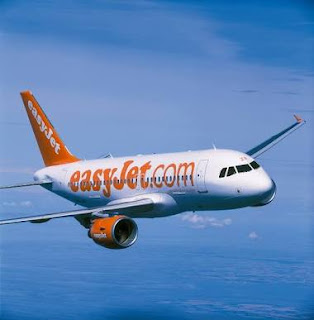EasyJet isn’t going overboard with the technology, nor has any plans to implement it in the short term. All-electric planes will only fly EasyJet’s short-haul routes (which means flights under three hours), and the company doesn’t believe they’ll see the light of day for at least ten to 20 years.
Don’t suddenly expect to be able to take a zero-emission journey to Berlin or a quick flight down to Rome, either. When EasyJet says short-haul, it really means it as the electric plane is capable of just 335 miles. While this may seem paltry, it does allow you to fly over to Paris, Edinburgh, Glasgow, Amsterdam, Cologne and Brussels from London Luton – where EasyJet operates.
It’s also possible that EasyJet may expand the reach of its all-electric planes by hopping between airports to open up European routes. Such a plan would require relevant airports to be equipped to both swap and charge the plane’s batteries – or provide long-layover opportunities.
EasyJet’s electric ambitions come as it forms a partnership with US firm Wright Electric. The American company has already built a two-person, battery-powered plane and has plans to scale up to a commercial craft capable of carrying up to 220 passengers.
"We share an ambition with Wright Electric for a more sustainable aviation industry," said Carolyn McCall, chief executive of EasyJet. "Just as we have seen with the automotive industry, the aviation industry will be looking to electric technology to reduce our impact on the environment."
With a commercial carrier like EasyJet backing the technology, it’s proof that electric aeroplanes are a seriously viable product. Their range may not be far, but the benefits in terms of emissions and noise are a huge plus point for the technology – perhaps we’ll finally see less outcry to new airport runways should all-electric planes become the norm.
Wright Electric plans to remove chunky jets from its plane designs, tucking them into the wings themselves to reduce drag and improve energy efficiency. Seeing as batteries would also take up less space than fuel tanks stored in the wings and undercarriage, planes could also be smaller and lighter.
Wright Electric’s EasyJet planes are also equipped with quick-swap batteries to speed up turnover time at a gate and a distributed engine management system to deliver power to the engines that need them most.
If the team can make use of Boeing’s new super-light metal, an all-electric plane could easily be one of the lightest and most aerodynamic commercial crafts. It’s unclear if Wright Electric have any plans to share their technology with Airbus or Boeing – the largest commercial and private aeroplane manufacturers in the world – but it’s likely the only way the technology could scale to meet the demands of the modern world.











No comments:
Post a Comment